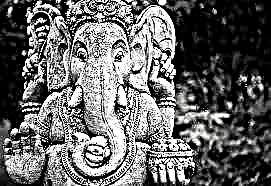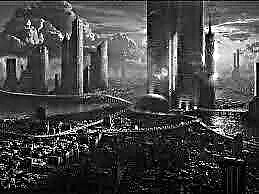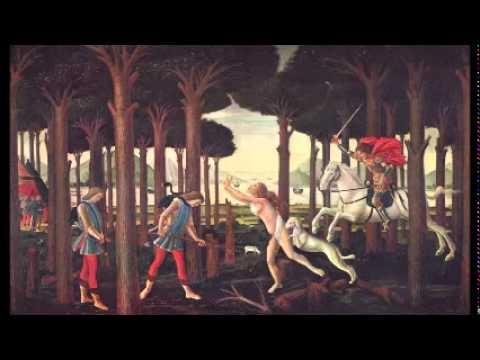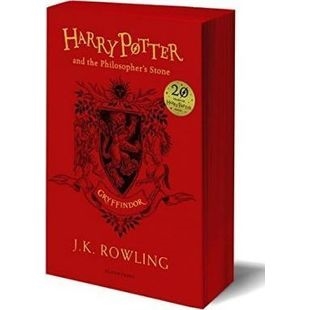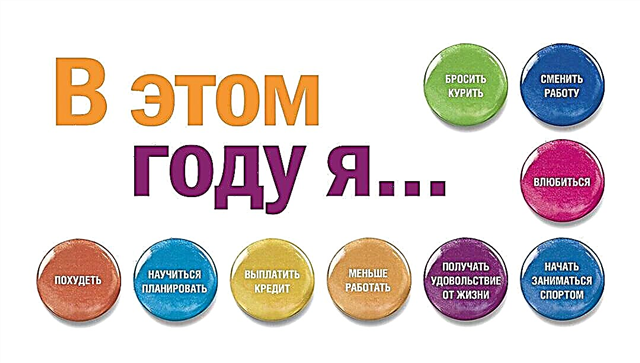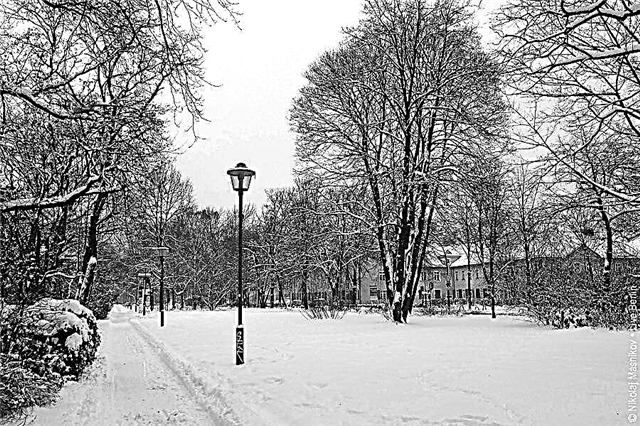The publisher devotes his magazine to the "unknown time writer of the comedy" About Time "(the anonymous author of the comedy is Catherine II), who creates in the era," when, to the happiness of Russia and the welfare of the human race, the wise Catherine rules us. ”
The author discusses with himself that, having called himself a Painter, he undertakes to write not with a brush, but with a pen, and intends to depict the most secret vices of the human heart. He will try to avoid the frequent mistake of writers who, denouncing other people's vices, do not see their own: such are Nevpopad (V.P. Petrov), Krivotolk (V.I. Lukin), Moral Teacher ("Anything", Catherine II). The author would like to abandon the risky undertaking, but cannot refrain from writing. Then he decides to choose a friend and obey his advice, and also never part with a beautiful woman named Caution. The author of weekly sheets becomes a debtor to all his readers, who each week will demand a half-sheet of his composition, however, he will keep his promise: according to the current fashion it is not difficult to write. Reason, doctrine, criticism, reasoning, knowledge of the Russian language and grammar rules are now not honored. Sciences are useless: “What's in the sciences, says Narkis: will astronomy multiply my beauty more than the stars of heaven?” The artist is a military man; his whole science is to be able to shout: Fallen! if! chop it! Krivosud, having received a judicial rank, says: “Are there any ranks in science? I didn’t learn anything and I don’t want to learn, but I’m a judge <...> Be a learned person with at least seven spans in your forehead, if you fall into our orders, then we will retrain him on our saltyk, if you don’t want to go around the world. About science! science! useless heaviness. O scientists! scientists! you are direct fools. ” Neither the Goldfinch, nor the Cleanser, nor the Volokita need science either.
In “An excerpt from a trip to *** I *** T ***”, which some researchers attribute to A. N. Radishchev, and others to N. I. Novikov, describes the impressions of a traveler traveling through villages and villages. “... In the three days of this journey, I did not find anything, praise worthy. “Poverty and slavery everywhere met with me in the form of peasants.” He arrived in the village of Ruined. Entering the peasant's hut, he found three crying babies in it, one of which dropped its nipple with milk, the other buried its face in the pillow and nearly suffocated, and the third threw off the diapers and suffered from bites of flies and the hard straw on which he lay.
Having reassured the babies, the traveler thought about how little these babies demanded: one demanded food, the other “uttered a cry that they just did not take his life from him. The third cried out to humanity so that it would not be tormented. Shout, poor creatures, I said, shedding tears, utter my complaints, enjoy the last such pleasure in infancy: when you mature, then you will lose this comfort. ” From the heavy smell that stood in the hut, the traveler fainted.
Recovering, he asked for a drink, but in the whole village there was no clear water. The traveler complains that the landowners do not care about the health of their breadwinners. The peasant children, seeing the carriage, fled from fear, thinking that their master had arrived. They did not believe that the visiting gentleman was good and would not beat them. The traveler gave them money and a pie.
The response to the publication of this “passage” was the English Walk, written by N. I. Novikov. The author talks about a gentleman he met on a walk who praised the passage and was looking forward to its continuation. Regarding the noise caused by the publication, he said: “Let the gentlemen of the critics say who is more offensive to the venerable noble corps, I will even more importantly say who makes shame on humanity: are the nobles use their advantage in evil, or is your satire on them?” The stranger complains that worship of everything foreign forces one to adopt first of all other people's vices, and even to honor them and not virtues. He regrets that the “passage” was not entitled “A Journey Written in English Style,” perhaps the name, “instead of censure, would have made it fashionable.” He asked to print the continuation of the journey and his reasoning entitled "English walk".
In the continuation of the passage that followed, the traveler describes the onset of the evening and the joy of the rich and idle gentlemen who spent the day with profit and pleasure. “And the peasants, my masters, were returning from the field in dust, sweat, exhausted, and rejoiced that for the whims of one man, they all worked hard in the past day.”
In the “Vedomosti” section there is a complaint from merchants about the walks of noble gentlemen through the guest house, which interfere with trade. One of the gentlemen who uproots this fashion is promised a reward. After some time, a letter from the merchants appears in the magazine. They do not consider walks of noble gentlemen harmful to trade at all. On the contrary, this allows them to either sell stale goods or sell some trinket at exorbitant prices.
Another piece of news: A great change in the sale of books has taken place on Millionnaya Street. Before, only novels and fairy tales were printed in Russian, but they were bought a lot. Now they have translated many good books from different languages, but they are not well bought. “The former great expense for novels and tales was, as some say, the cause of ignorance, and the present small best books are considered to be the cause of our great enlightenment. <...> Who would have believed in France if they had said that there were more Rasinov's works distributed in fairy tales? And it comes true for us. Thousands of one nights sold far more works of Sumarokov. And no matter what the London bookstore would be horrified to hear that we have two hundred copies of a printed book sometimes sold out in ten years? Oh times! about morals! Be encouraged, Russian writers! your works will soon stop buying at all. ”
In the “Letter to Mr. Painter”, the author of the comedy “About Time” (Catherine II) thanks him for dedicating the magazine and, without revealing his true name, promises to send him his works in the future and regrets that “for this case, I’m not ready for anything because for five whole months I was busy writing comedies, of which I have five ready ... ".
A certain lady asks the author of the “Painter” to collect all the fashionable words and print them in a separate book under the name of the Fashionable Women's Dictionary. Soon, the “Experience of the fashionable dictionary of the dandyish dialect” appears with examples of the old and new uses of “Ah,” the words “matchless,” “unprecedented,” and “blockhead”.
Someone sent maxims taken from his grandfather’s notes: “Tell me who you are treating, then I’ll tell you what you are”, “Don’t become a backside, young man, before those whose rank is higher than you and older than you for years”, “Don’t interpret tell your son about his family, tell him about the virtues without which he will humiliate his birth ”,“ The best fate for a woman is honor ”, etc.
The Italian archaeologist Diodati, having read the Commission’s Order on the writing of a new draft code written by Catherine II, admires the enlightened Russian empress, who “published a new law in everything, in which, like in a mirror, she saw her mind, with whom to compare and who to prefer I don’t find it. ”
In the letter of the county nobleman to his son Falalei, the landowner complains about life: although by order of Peter I the nobles were given liberty, “but nothing can be done by one’s will, it’s impossible to take away the neighbor’s land and land”, “Now you can’t give money as a percentage, more they’re not ordered to take six rubles, but it happened that they took one hundred and twenty five rubles each. ” He is indignant at the “Painter,” calling the landowners tyrants and pitying the peasants, “someone rich alone needs to be either a landowner or a peasant: after all, not all old men should be in igumen”. He believes that peasants and peasants to work without rest: "they work for us, and we cut them, if they become lazy."
Later, Falalei sent other letters he received from relatives. His father calls him to return to the village, where he has already looked for him a bride - the governor’s niece, so that all disputed cases will be resolved in their favor and they will be able to cut off the land from neighbors “according to the most threshing floor”. The mother of Falalei, feeling the nearness of death, writes to her son that she wants to give him the money that she had stolen from her husband. Uncle Falalei also calls his nephew to the village: his mother died, and his father, who had previously beaten her, cries about her, “like a beloved horse”.
The unfortunate husband, suffering from the causeless jealousy of his wife, asks the Painter for advice on how to get rid of this scourge. The painter replies that jealousy is a dangerous disease and most often does not come from passionate love, but is "a veil of pretense, from which it is more convenient to produce love tricks."
The son of a cruel landowner, who spent his youth in idleness, became a player and a drunkard, for which his father deprived him of his inheritance. Forced to earn his own living, the young man first took up indecent matters, but then the rest of his shame and conscience began to correct his actions, he entered military service and was finally corrected. Now he lives calmly and pities those whom his parents and mentors have not raised well. They edified them and he wrote a letter. The painter condemns both parents and an ungrateful son and calls on fathers and mothers to raise their children "with care" if they do not want to subsequently earn their contempt.
A regular reader of "Painter" writes a letter condemning the "coffee fortunetellers", because of which innocent people often suffer. A silver spoon disappeared from Skupyagina. She turns to the fortuneteller. Having announced that the thief has black hair, the fortuneteller receives a half ruble or a ruble, and Skupyagina calls on the black-haired Vanka and forcibly forces him to confess to the theft, which he did not commit. As a punishment, she takes his salary and feed money from him. Vanka becomes hardened and becomes a thief from a kind person. He steals his mistress and runs away, but he is caught and sent to penal servitude - thus, Skupyagina, having lost a spoon, is also deprived of Vanka.
In his Letter to Catherine II, the Prussian King Frederick II places Catherine as a legislator on a par with Lycurgus and Solon. He writes that she can only create the “Academy of Rights, for the training of people who are determined to be judges and cookers”.
Koryakin, with one soul, under whose name Novikov himself is hiding, complains that because of the "Painter" the bride's mother almost refused him home, suspecting him of friendship with the master. When the nobleman explained to her that the Painter was not a painter at all, but a learned man, the landowner was even more horrified and confronted him with a choice: either forget about the books and the Painter, or look for another bride. Landowner considers scholarship a vice, and books evil.
The translator, who calls himself I, sends an excerpt from the book of Prussian King Frederick II “Morning Thoughts”. Frederick welcomes writers and philosophers, for “they give out honors, and without them no firm glorification can be gained. So, they should be caressed as necessary, and rewarded according to politics. ” In addition, he regularly pays annual awards to scholars: “These philosophers will immediately turn the war into the most terrible frenzy, as long as it touches their wallet.”
A curious audience (D.I. Fonvizin) sent a tale of muses, which Apollo sent to people. The first carried the mind, the second virtue, the third health, the fourth longevity, the fifth sensual amusement, the sixth honor, and the seventh gold. Muses came to the city where there was a fair.
The first of them was driven away, considering the mind to be a prohibited product, the second, no matter how hard she tried, could not find buyers for her goods, the healer beat off all the buyers from the third, the fourth demanded eighty thousand rubles for a long life, but it seemed to the rich man who had saved six hundred thousand that too expensive, so many people flew into the fifth muse that the box of amusements crashed and they all spoiled, a crush formed around the sixth muse and a fight ensued, so she quietly took out the real honor from her box and filled it with “empty titles”, for which people continued to beat. The seventh muse miraculously survived; people stole all wealth and fought among themselves, so those who grabbed the most money left the most wounded and mutilated.
When the muses returned and told the gods how people long for amusement, honor and wealth, the gods decided to favor with these three things only those who have reason and virtue.
Later in the magazine appears the continuation of the tale. The author in a dream is the muses who thank him and the painter for the description of their earthly wanderings and ask about who the metresses are (courtesans in the 18th century).
Uncle Falaley Yermolai, after reading his letter in the magazine, became angry with the Painter, who introduced him as a thief. Yermolai is not a thief: "The thief who robs on the road, and I took bribes in my house, and I did business in the court." Yermolai proposes that the matter be settled in peace: let the Painter pay him and his family “dishonor” - and it’s all over, otherwise he will sue, and then the Painter will not be greeted: “I can’t get used to such lawsuits, I finished many young men like that, that my wife, my daughters, and my dishonesty had accumulated a dowry for my three daughters.
The “painter” prints translations of the satyr Boileau: the eighth, where we are talking about the stupidity of people, even superior to donkey stupidity, and the tenth, making fun of women.
The author, reporting about himself serving as a mere hypochondriac (so Catherine II and the staff of “All sorts of things” called the publisher “Trutnya”, which speaks of Novikov's belonging to the article), now calls himself “inconvenient, rational and instructive” in allegorical form speaks of the oppression that was censored by him at the direction of Catherine.
Bogodar Vrazhkany (pseudonym V.F. Karzhavin) tells the story of a rich merchant Zhivodralov, who, having gathered for his son-in-law on his nameday, did not want to splurge on a cabman and sent letters to his debtors, who immediately sent him a coachman, a couple of horses and zapomniks. Having cleaned out the carriage taken once instead of interest from Malodengin, Zhivodralov went to the birthday man, “ate, drank, drank, and at home he left a piece of bread at home tomorrow, but the hryvnia was in his pocket, and they say about the family that they’re in that day without him they were amusing themselves with bread and kvass. ” Having a lot of money, Zhivodralov sends so much to his son, an enlightened and worthy young man, that he barely has enough for food.
The young man asks the Painter for advice if he is ashamed to retire: he wants to marry, go to the village and live in peace and quiet until the end of his life. The painter replies that "in retirement, a young man is not ashamed to only be such a person and is useful to himself and society."
The last sheet printed "Ode to Her Majesty Catherine the Great Empress and Autocrat of All Russia."

